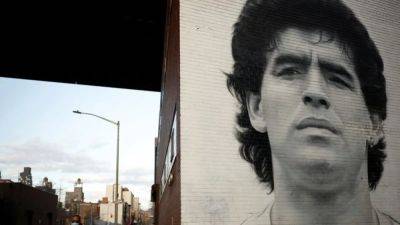What might happen to Argentina after Milei's mega-decree?
Argentina's far-right libertarian President Javier Milei unleashed a mega-decree midweek changing or altogether scrapping 366 economic rules, a country's first.
None of its previous leaders, democratically elected presidents and dictators alike, attempted such a massive dismantling of the system.
It is also precisely what Milei promised on the campaign trail, brandishing a live chainsaw to symbolise his bid to slash public spending, his response to Argentina's triple-digit inflation after decades of financial mismanagement.
While, according to Argentine law, Congress still has the power to sink Milei's program, many are concerned his deregulatory decisions might make matters worse in the South American country of 45.8 million.
Ten days after taking office, and on the eve of the festive holidays, Milei presented his DNU, or "necessary and urgent" decree to loosen some of the rules governing the country's economy as annual inflation hit 160%.
One big change will be the removal of all rules between tenant and landlord, such as laws putting a cap on rental increases.
In recent years, landlords have increasingly priced their properties in US dollars to avoid being stuck with rental income long overtaken by soaring inflation. This has been a nightmare for renters in a country where access to dollars has been strictly controlled. The deregulation will now make charging rent in dollars legal.
Milei has also loosened labour laws, with the trial period for new employees going from three to eight months. Compensation laws for dismissal without cause have been modified in favour of companies and he plans to renegotiate labour agreements in force since 1975.
He also scrapped limits on exports and said the internet market will be






